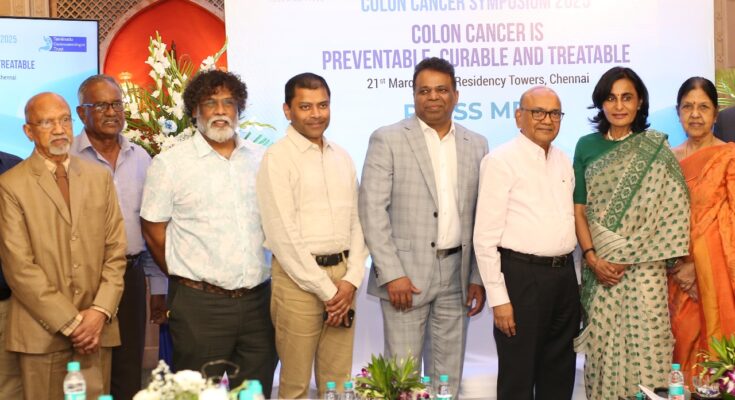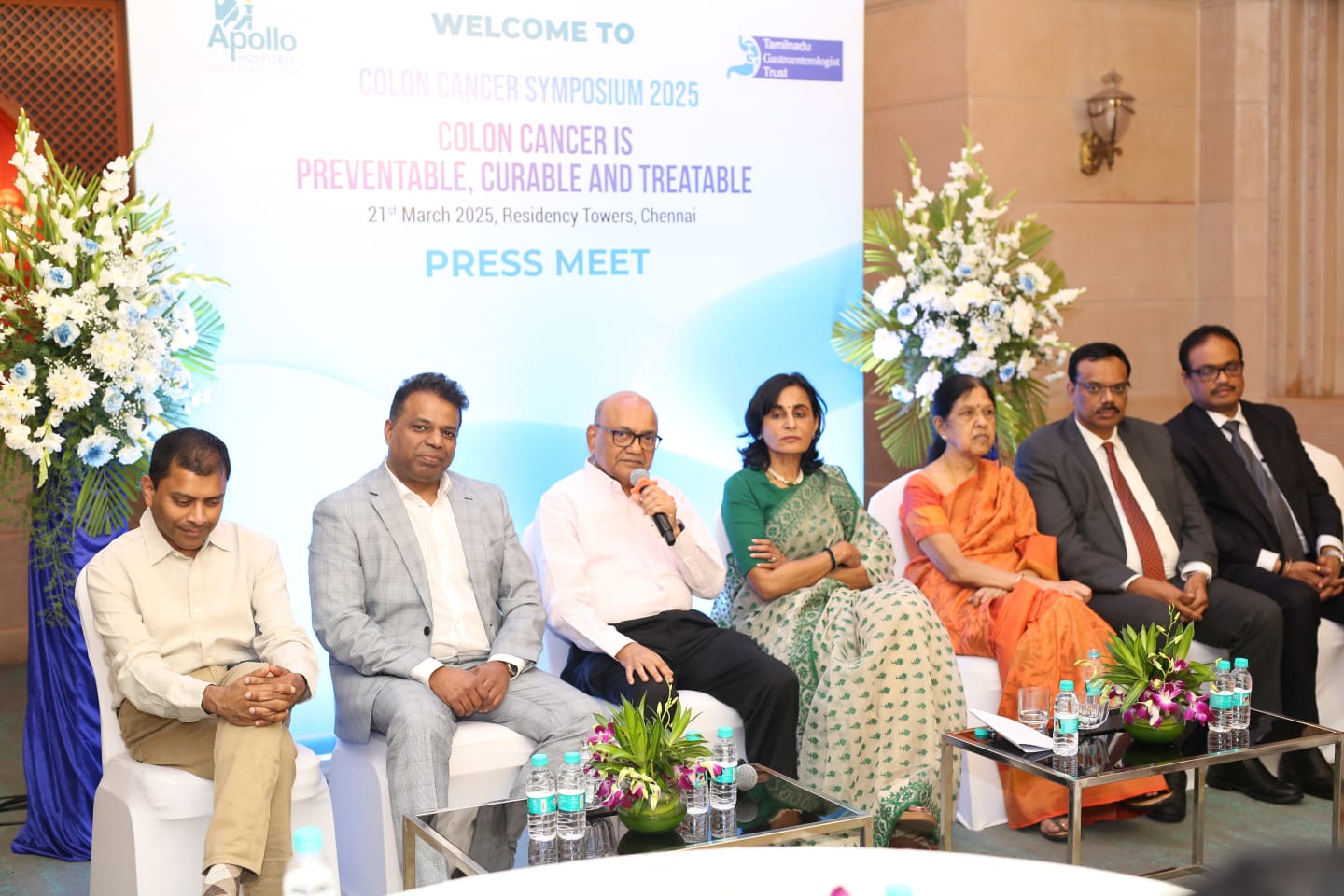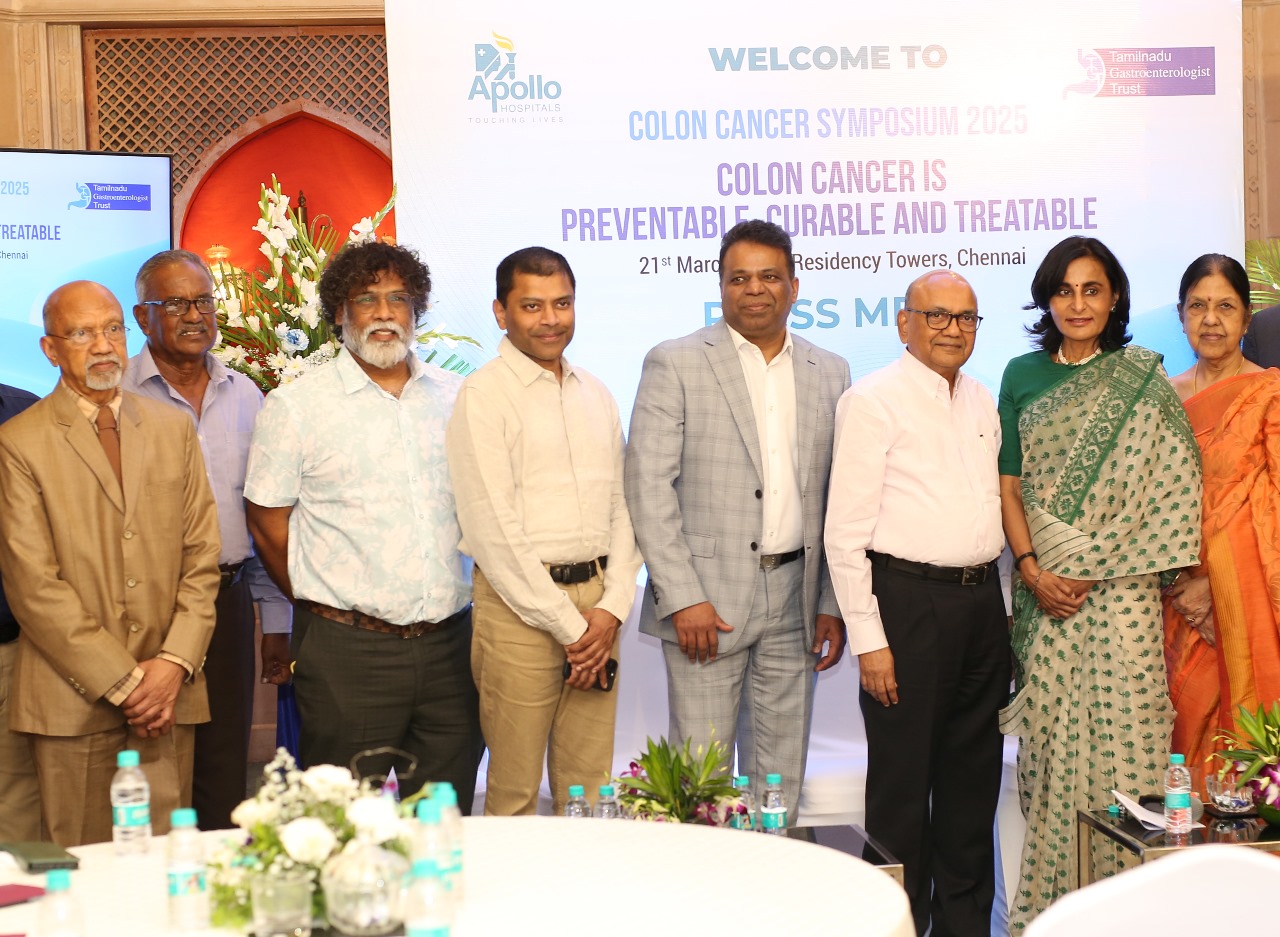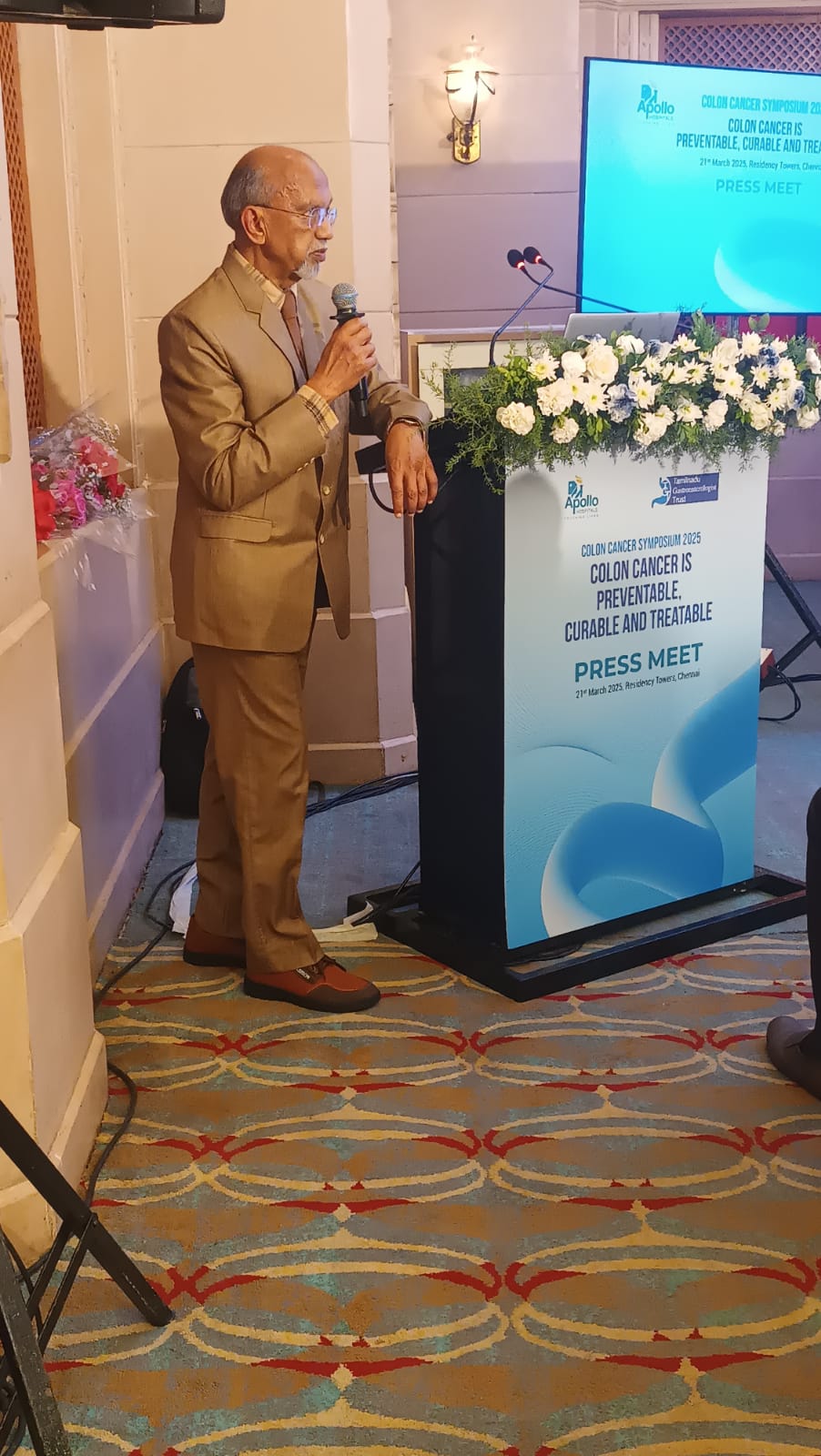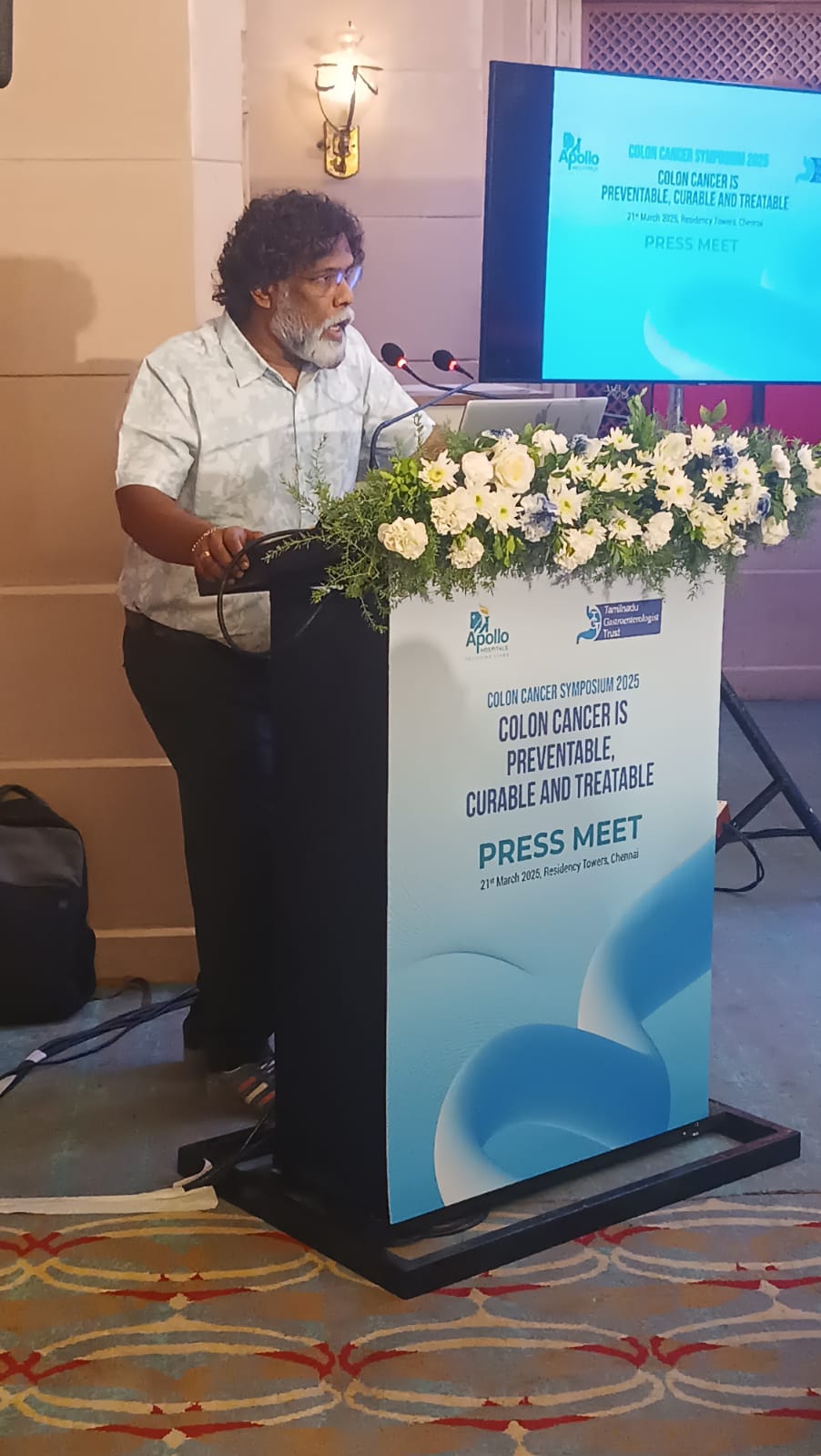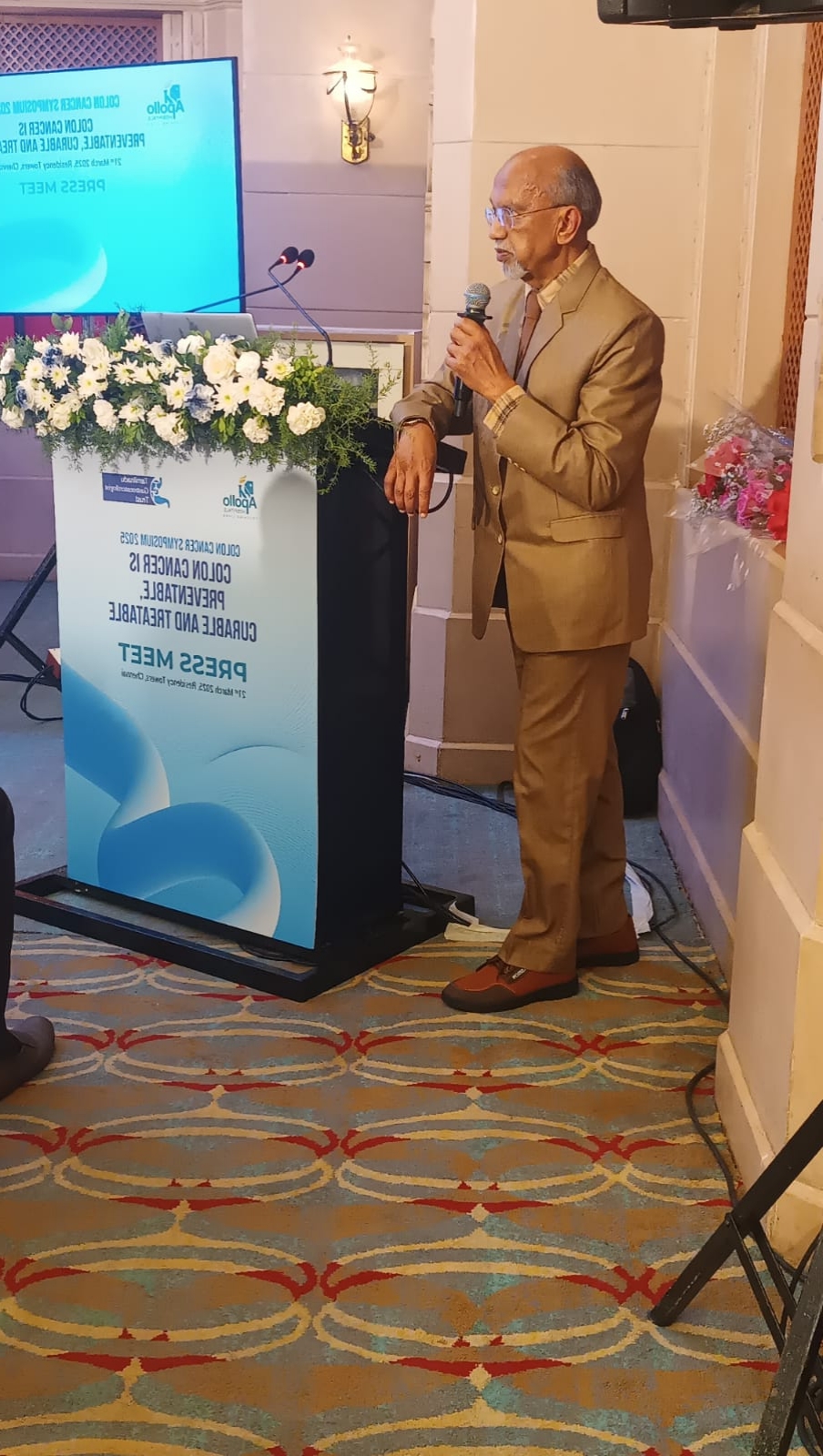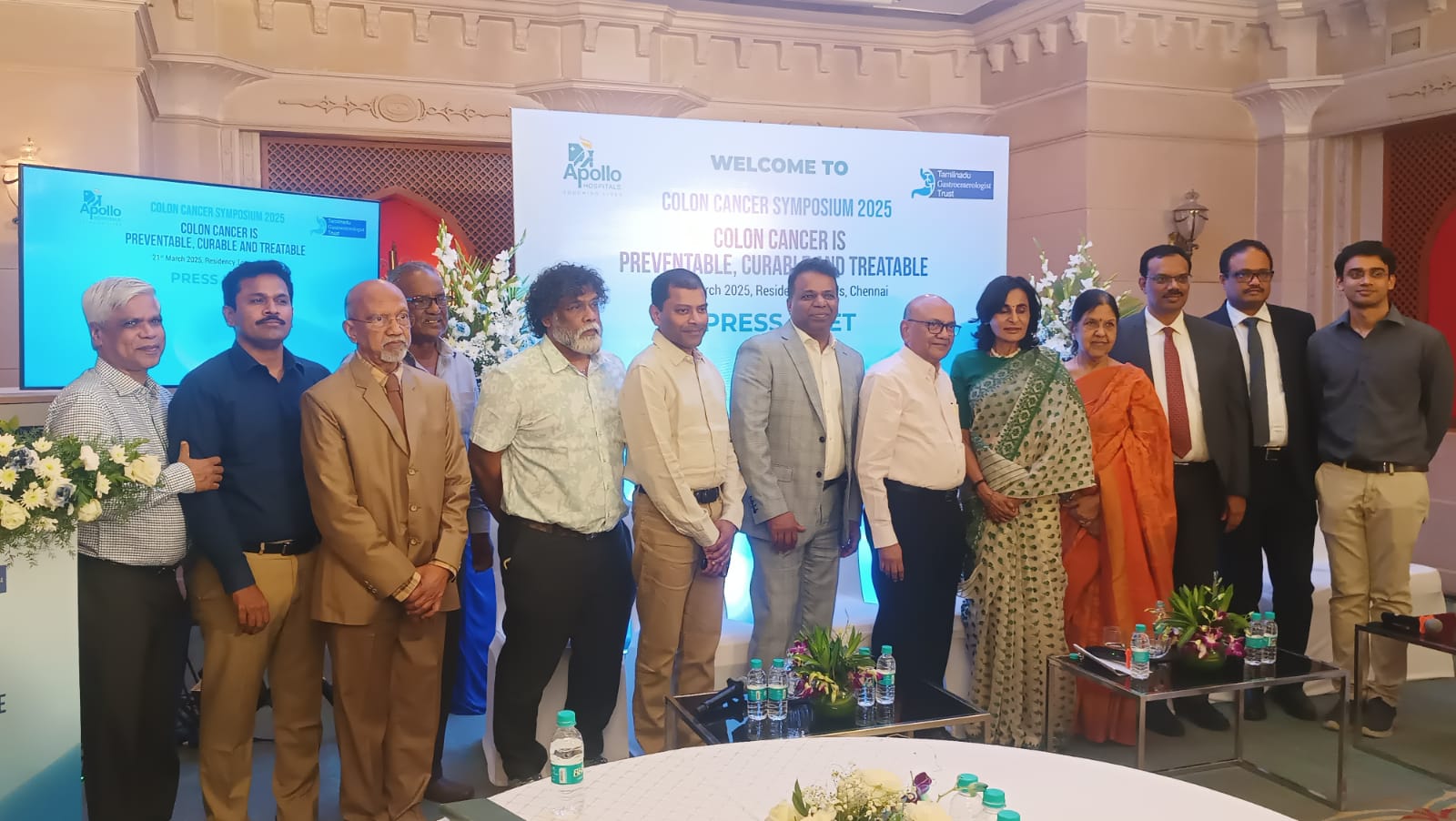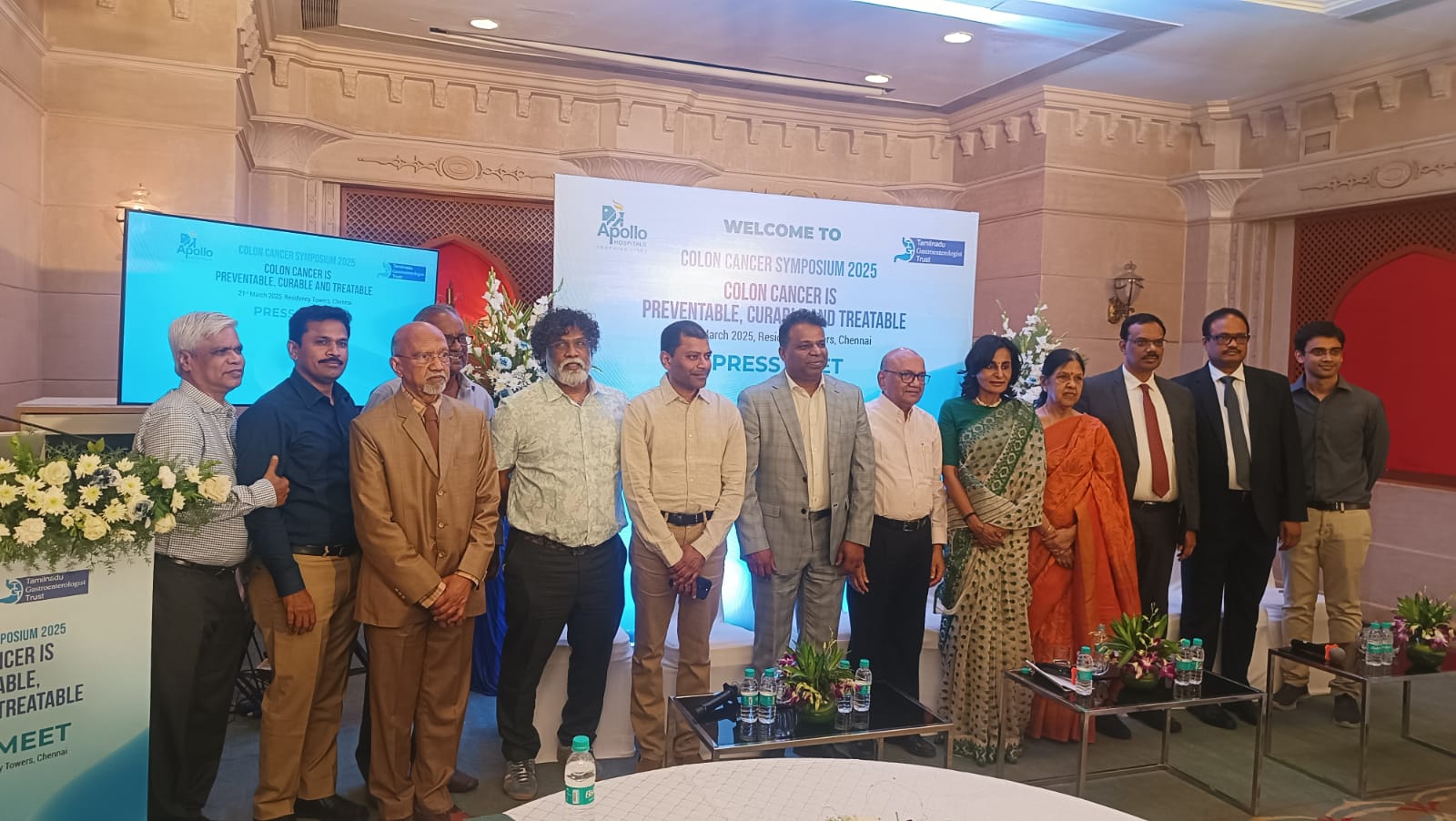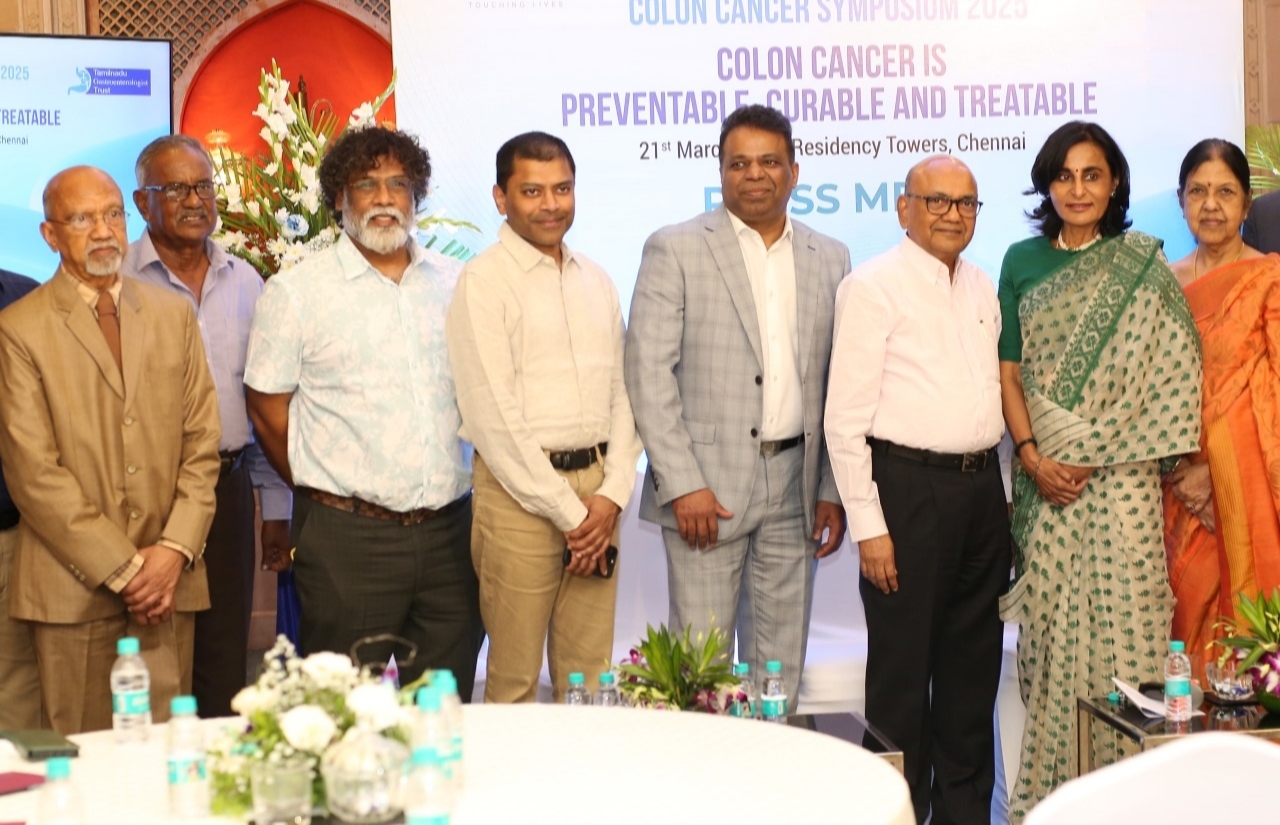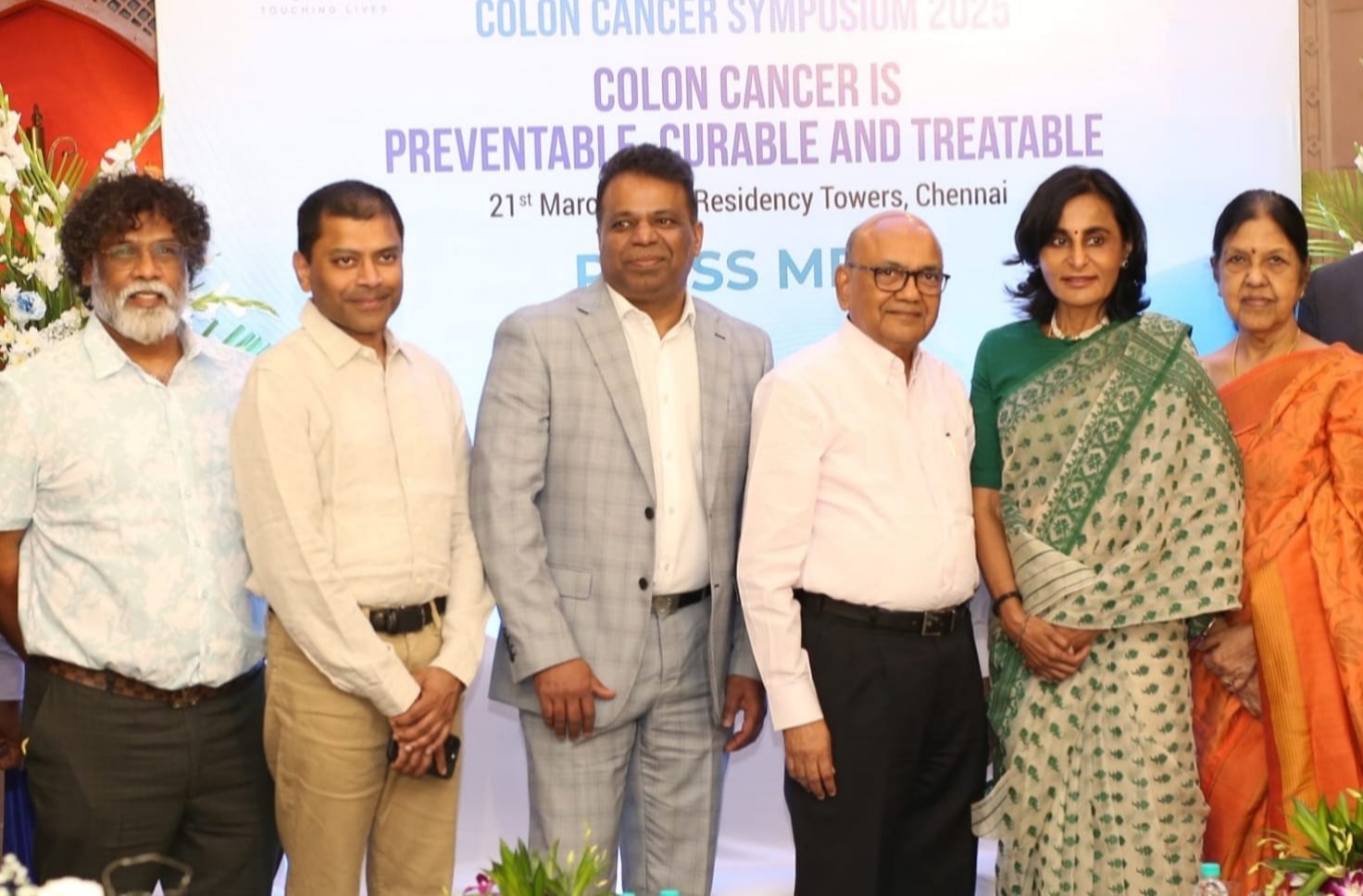Cancer in all its forms is increasing worl dwide. Colorectal (Bowel) cancer .
Cancer is cancer arising from large intes tine. Depending upon the location in the large bowel it can be either colon cancer or rectal cancer – latter arising from the last end of the colon.
Though India has lower incidence of this cancer compared to the Western and de
veloped Asian countries, it is worrying t hat the cancer occurrence is definitely
increasing in recent times.
Usually it affects people aged 50 yrs or more. But our concern is that In India ar ound one third of these cancers affect e arlier at the age of 40-50 yrs. Men are af affected more than women. In India 1 in
10000 people develop this cancer. Sadl y 2 out of 3 persons diagnosed with this cancer die in the same year. This is beca use the cancer gets diagnosed late. Colo n cancer develops in majority as small cl umps of excess growing cells in the linin g (mucosa) of the large bowel. For a long time this may not cause any symptom at all. By the time it causes any symptoms (see table) its likely that bowel cancer is already in advan advanced stage,
Table1: What are the symptoms of Bowel Cancer -:
Diarrhoea
Constipation
Change in caliber/shape of stools
Urgency to pass stools
Blood in stools
Tummy pain and bloating
Weight loss
Anemia and weakness
When caught early however colon canc er is curable by surgery and supportive t
reatment Prevention is better than cur.
Table 2: How to prevent colon cancer aff ecting us?
1) Reduce risk factors:
• Maintain ideal body weight
• Regular physical vi exercise
• Stop smoking
• Avoid excess alcohol
• Reduce red meat consumption
• Avoid processed foodTable
• Eat more vegetables and fruits
Cancer in all its forms is increasing worl dwide. Colorectal (Bowel) cancer is canc er arising from large intestine. Dependin ing upon the location in the large bowel it can be either colony Cancer or rectical
cancer – latter arising from the last end of the colon. Though india has lower inci dence of this cancer compared to the we stern and developed Asian countries, it is worrying that the cancer occurrence i s definitely increasing in recent times. U sually it affects people aged 50 yrs or m ore. But our concern is that In India arou und one third of these cancers affect ear lier at the age of 40-50 yrs.
Men are affected more than women. In i
ndia, 1 in 10000 people develop this can cer. Sadly 2 out of 3 persons diagnosed with this cancer die in the same year. Thi s is because the cancer gets diagnosed la te. Colon cancer develops in majority as small clumps of excess growing cells in t he lining (mucosa) of the large bowel. Fo r a long time this may not cause any sym ptom at all.
2) Get ‘’ screened’’ for bowel cancer whe
n you have no symptom at all: If
• You have family member(s) with bowe l cancer especially before ageof 50.
• You have family members with breast, uterus, ovary cancer etc .
• You have longstanding inflammatory b
owel disease like ulcerativecolitis
• You are on medications for some years after organ transplantation.
Bowel Cancer Screening :
Screening can be done by stool tests for
hidden blood present, special CT scans a
ndmore effectively by direct internal ex
amination of large bowel. Inside of colo
n can beexamined by sigmoidoscopy wh
ich looks at left side of colon where mos
t cancers occur or colonoscopy which ca an look at whole of colon .At colonoscap
doctors can localise the cell clumps ( pol yps) in bowel lining, remove them and th us stop them from developing into biwel bowel cancer.
How to catch colon cancer early?
By increasing awareness of both public
and health professionals we can diagnos e biwel cancer early, cure them and mak e them live a long healthy life.
• Don’t’ be shy to discuss/ Don’t ignore b
owel symptoms mentioned earlier!
• See your doctor especially if these bo
wel changes persist beyond 6weeks
• If routine blood checks show anemia g
et medical opinion as to the cause of ane
mia Healthcare Professionals should co nsider referring to specialist if
• Patients aged 50 or more have blood
mixed in stools for 6 weeks or longer
• Patients aged 50 or more have loose,fr
equentstools for 6 weeks or longer
• Patients aged 40 or more have both lo
osestools and blood in stools for 6 week
s or longer
• Anemia in any manor any non menstru
ating woman
• Lump in abdomen or rectum on physi
cal examination
• Abnormal bowel imaging on Xrays or s
cans
OUR MISSION: We pledge to conduct
programs and produce material by print
and viasocial media to educate the publi ic on the increasing incidence of this con
dition and toencourage screening as an
effort to identify and treat this conditio
n at the earliest.
